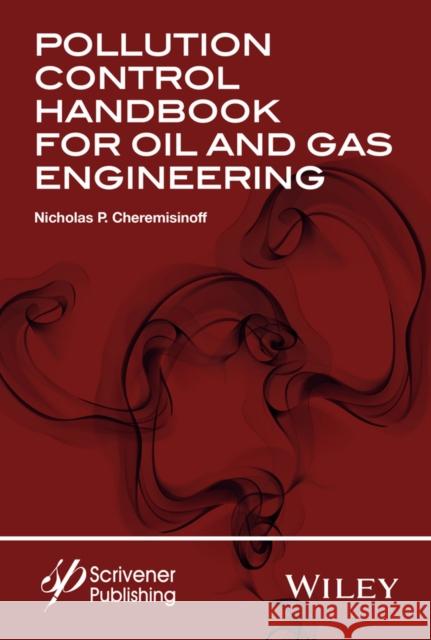Pollution Control Handbook for Oil and Gas Engineering » książka
Pollution Control Handbook for Oil and Gas Engineering
ISBN-13: 9781119117612 / Angielski / Twarda / 2016 / 1408 str.
This is a major new handbook that covers hundreds of subjects that cross numerous industry sectors; however, the handbook is heavily slanted to oil and gas environmental management, control and pollution prevention and energy efficient practices. Multi-media pollution technologies are covered: air, water, solid waste, energy. Students, technicians, practicing engineers, environmental engineers, environmental managers, chemical engineers, petroleum engineers, and environmental attorneys are all professionals who will benefit from this major new reference source. The handbook is organized in three parts. Part A provides an extensive compilation of abbreviations and concise glossary of pollution control and engineering terminology. More than 400 terms are defined. The section is intended to provide a simple look-up guide to confusing terminology used in the regulatory field, as well as industry jargon. Cross referencing between related definitions and acronyms are provided to assist the user. Part B provides physical properties and chemical safety information. This part is not intended to be exhaustive; however it does provide supplemental information that is useful to a number of the subject entries covered in the main body of the handbook. Part C is the Macropedia of Subjects. The part is organized as alphabetical subject entries for a wide range of pollution controls, technologies, pollution prevention practices and tools, computational methods for preparing emission estimates and emission inventories and much more. More than 100 articles have been prepared by the author, providing a concise overview of each subject, supplemented by sample calculation methods and examples where appropriate, and references. Subjects included are organized and presented in a macropedia format to assist a user in gaining an overview of the subject, guidance on performing certain calculations or estimates as in cases pertinent to preliminary sizing and selection of pollution controls or in preparing emissions inventories for reporting purposes, and recommended references materials and web sites for more in-depth information, data or computational tools. Each subject entry provides a working overview of the technology, practice, piece of equipment, regulation, or other relevant issue as it pertains to pollution control and management. Cross referencing between related subjects is included to assist the reader to gain as much of a practical level of knowledge.











